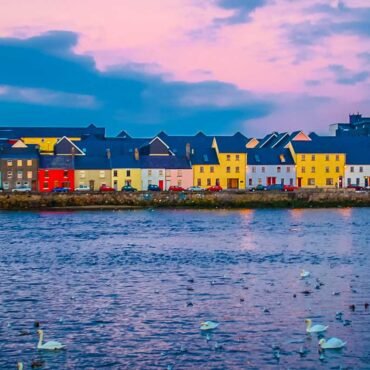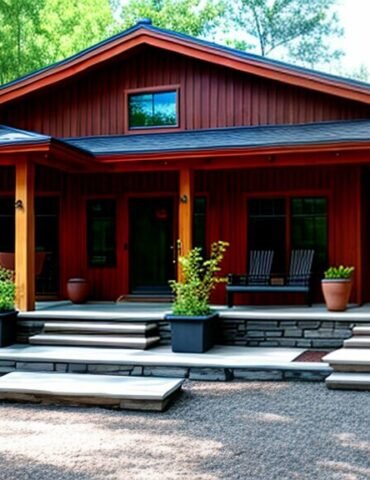Australia’s building and construction sectors are facing a double challenge.
The pandemic has shown the vulnerability of global supply chains and the threats posed by our dependence on imported construction materials. We’ve seen building and infrastructure projects delayed for months due to the disruption of overseas travel and trade.
At the same time, the world’s economies are racing to decarbonise and Australia cannot afford to be left behind.
But what if we could decarbonise our building and construction sectors and re-localise supply chains at the same time?
Addressing embodied carbon
Embodied (or upfront) carbon refers to the total greenhouse emissions generated during the manufacture of the materials used in buildings and infrastructure. Our built environment is responsible for about a quarter of Australia’s greenhouse emissions and in 2019 embodied carbon made up 16% of Australia’s total built environment emissions.
A recent Green Building Council of Australia report shows that without intervention in the marketplace, this share will balloon to 85% in 2050 at a time when Australia must achieve net zero emissions in line with the Paris Agreement.
WWF-Australia has been collaborating with a group of committed industry players across the building and construction supply chains to explore what can be done to help decarbonise our building and construction sectors.
Last year we released a report that looked at the barriers to procuring low-carbon materials, and what an industry-led coalition might achieve in overcoming these barriers and unlocking opportunities.
The idea was to bring together suppliers, builders, developers, contractors, procurement professionals, engineers and architects, researchers and policymakers to accelerate the adoption of low- and zero-carbon construction materials.
At a time when construction is leading our economic rebuild, we have a fantastic opportunity to decarbonise the sector.
Industry and government join forces
On 22 April this year, Earth Day, we launched the Materials & Embodied Carbon Leaders’ Alliance (MECLA) with 42 Founding Partners and many other members representing industry, university research schools, the NSW Government and local councils. The number of Founding Partners has since grown to 100.
With members like LendLease, Aurecon, Transurban, Boral, BlueScope, Mirvac and Laing O’Rourke, MECLA was formed to help the building and construction sectors to meet the goals of the Paris Agreement and achieve a circular economy.
This will mean working collaboratively to create demand for products like greener steel, concrete, cement and aluminium, alternative products like mass timber, and reused and reformed waste materials that can be used to decarbonise Australia’s construction industry, and exported to the world.
If successful, the initiative will stimulate onshore material innovation and production, and position Australia among the top five suppliers of zero-carbon materials.
MECLA includes working groups that cover both demand and supply-side of the industry, all working to align industry with the Paris Agreement targets.
There are five key areas of focus:
- Sending a demand signal to material manufacturers by convening ‘anchor’ customers who are committed to procuring low/zero carbon materials, to incentivise innovation.
- Defining a best practice embodied carbon evaluation framework.
- Knowledge sharing through case studies and demonstrations to build confidence in low-carbon materials and raise awareness of technological advancements on the horizon.
- Making it easier to specify, procure and supply low- and zero-carbon building and construction materials including steel, cement, aluminium, mass timber and other materials.
- Accelerating the supply side materials sector to overcome technical, funding, standard and capacity barriers to reducing carbon emissions.
The enthusiasm right across the supply chain has been overwhelming and we believe MECLA can drive lasting change and help Australia seize a once-in-a-lifetime opportunity to become a renewable export powerhouse.
We have a rich heritage of innovation, and with the right focus and ambition, there is no reason why Australia should not be the birthplace of new innovations to decarbonise our built environment. And protecting our industry from disruptions to global supply chains by stimulating local innovation and manufacturing will be an added bonus.
If you would like to learn more about MECLA, email mecla@wwf.org.au.
*Monica Richter, WWF-Australia’s Senior Manager — Low Carbon Futures, will be speaking at the upcoming Impact X Summit Sydney 2021: Climate growth and accelerating pathways to zero emissions. To find out more information about how to register for the Impact X Summit Sydney 2021 being held on 2–3 November, visit here.
Image credit: ©stock.adobe.com/au/FreshPaint


















Post comments (0)